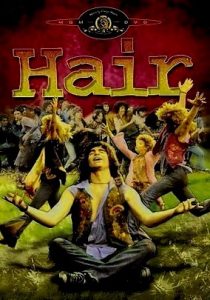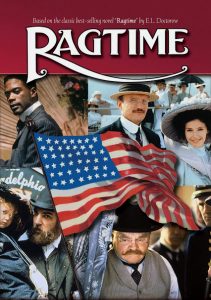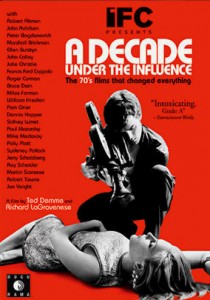Hair-1979
Director Milos Forman
Starring Treat Williams, John Savage, Beverly D’Angelo
Top 250 Films #200
Scott’s Review #664
Reviewed July 14, 2017
Grade: B+
Hair is a 1979 musical film that, in addition to catchy singing and dance numbers, possesses quite a serious theme- that of the Vietnam War.
This film is not your traditional Metro-Goldwyn-Mayer style musical prevalent in the 1950s. Rather, the entire experience is a unique one with an underlying dark tone and is presumably a message film with a liberal slant.
Made in 1979, set in the late 1960s, Hair centers primarily around two young men, along with a bevy of hippie friends, while most of the action is set in New York City.
Despite the time, the film does not always succeed in the authenticity category- many of the costumes and hairstyles scream the late 1970’s. The film also has the late 1970s “look”, on the cusp of the 1980s with poofy hair associated with the times.
This forces the viewer to escape into a world largely of make-believe.
Claude (John Savage) is a naïve young man from folksy Oklahoma, having lived a sheltered and religious life, proper and away from big city living. He is drafted and sent to the Big Apple, where he will wait for the assignment.
Charismatic Berger (Treat Williams) and company befriend Claude after he gives them spare change, soon becoming the best of friends. Claude falls in love with socialite Sheila Franklin (Beverly D’Angelo) in town from neighboring Westchester County, NY and a love story ensues.
When Claude, Berger, and company interrupt a lavish dinner party hosted by Sheila’s parents, a hilarious yet informative scene develops. While Sheila secretly is gleeful at the arrival of her new friends, Sheila’s parents are none too pleased, which results in a standoff between Berger and Sheila’s family.
Partly comical, this scene also displays the severe class distinctions between many of the characters.
The rest of the film centers on the friend’s antics involving drug use, and relationship trials and tribulations, and culminates in a cross-country drive to desperately see Claude before he is shipped to Vietnam.
Multiple scenes involve songs concerning the turbulent race issues of the times- my personal favorites are the opening number, “Aquarius” and the scandalous, “Black Boys” and “White Boys”, performed by Nell Carter.
Never one to be disappointed with a film set in Manhattan, Hair is a film basking in fantasy and the entire production seems to be one big dream as the carefully crafted musical numbers interspersed with the more dramatic elements.
Still, much of the film consists of the group prancing around Manhattan, and wonderful areas such as Washington Square Park are featured as well as several changes of seasons, giving the film a slice-of-life feel.
My favorite performance is that of Treat Williams as Berger. Part showman, part jokester, and part earnest, he fills the role with dynamic energy that comes full circle in the last act when he drastically changes his appearance for the sake of a friend.
The ending of the film is melancholy and an inevitable reminder of the coldness and finality of war about human life.
The encompassing song is “Let the Sunshine In”, a powerful and worthy conclusion to the film as the gang visits Arlington National Cemetery, to join an anti-war peace rally and say goodbye to a friend.
The film version of Hair (1979) may be drastically changed from the stage musical version, a version I shamefully have yet to see, but on its own merits, the film is a poignant, powerful, and wholly entertaining musical adventure.


